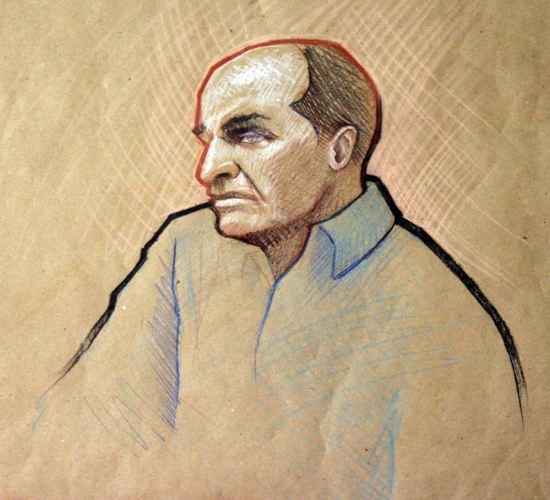Denis Florian Ratte could very well still be free today if not for the efforts of his daughter, Anna Sieppert, to get to the truth behind the disappearance of her mother slightly more than 13 years ago.
Sieppert, now 30 years old, maintained a campaign to keep the case on the police radar and after about 10 years of hearing they didn't have the resources to continue the investigation, she "went a little higher and told then Prince George needed more resources."
The turning point came in 2008 when Ratte, who had moved to the Lower Mainland by that time, became the subject of an elaborate undercover operation in which police officers posing as high-level criminals went so far as to take him on a trip to Winnipeg where they staged a shakedown to gain Ratte's confidence.
Ratte eventually confided in them that he killed his wife, Wendy Ann Twiss Ratte, 44, on August 18, 1997, disposed of her body in a swamp east of Prince George and left the family van parked at a supermarket, now Value Village, to make it look like she ran away from the family.
Such operations, known as "Mr. Big" stings don't come cheap. The cost of this particular operation has not been disclosed but Simon Fraser University criminology student Kouri Keenan has found they typically range from $100,000 to $300,000 and found several that exceeded $2 million.
Sieppert, who was 17 years old when her mother disappeared, was not always convinced her father killed her mother.
"Being his child I didn't want to believe it, when your parents tell you something, you believe everything they say," she said Friday following B.C. Supreme Court Justice Glen Parrett's ruliing that Ratte must serve at least 15 years in jail before becoming eligible for parole.
"But his own story started to fall apart and the pieces started to come together for me. I can't say I completely believed it until they arrested him, but the pieces really started to fit together at that point."
Those pieces included Ratte's habit of killing neighbourhood animals.
"He told stories of how he would go around killing people's pets without a hint of remorse," Sieppert told the court when she gave an impact victim statement. "He enjoyed telling his children how easy it was, kind of like how he told his gang friends how easy it was to kill our mom."
Out of work because of an injury from a sawmill accident, Ratte took an abrupt change in character. From the kind, caring father, he turned into a "lowlife" obsessed with gambling to the point where he stole money from his family.
Ratte continued to cash his wife's employment insurance cheques for the month after she went missing, had brought a prostitute into the family home about a year after and in 2000 was convicted of drug dealing.
"Of course it was the husband, how could I not have seen it?" Sieppert told the court. "I didn't see it because I was under the impression that he was still the father that had raised me."
Ratte told undercover police he killed his wife because she was a sexual predator praying on their daughter. He later recanted the story, saying Wendy was a kind and caring woman who loved her children.
Sieppert stressed as much following the sentencing.
"Anyone who thinks that needs to know, she was not that kind of person," she said. "Every single value I have comes from her...she was a strong moral person, she taught her children strong morals.
"We called her a crusader...she was an advocate for human rights, for multiculturalism, sexual rights, she was a fighter."
Indeed, Wendy Ratte was supposed to be meeting with a group to work on an anti-racism video on the day she disappeared.
Sieppert's brother, Gabriel Pelletier, 28, remained convinced Ratte did not commit murder although he accepted the jury's verdict. However, the two said they're maintaining a relationship despite their differences in opinion. "All we have left is each other," Pelletier said.



